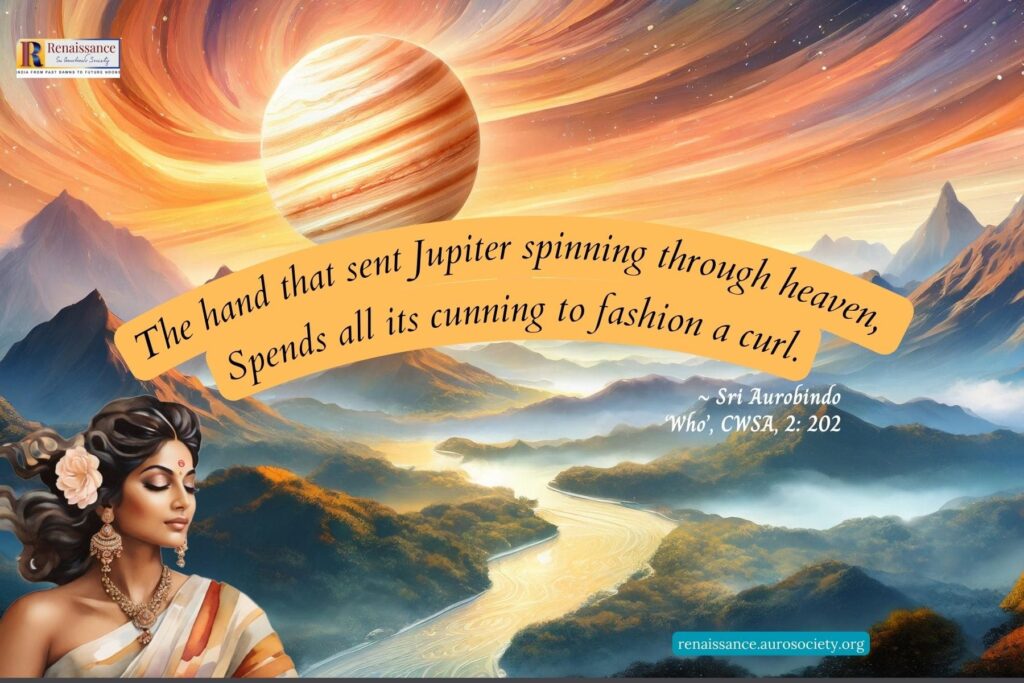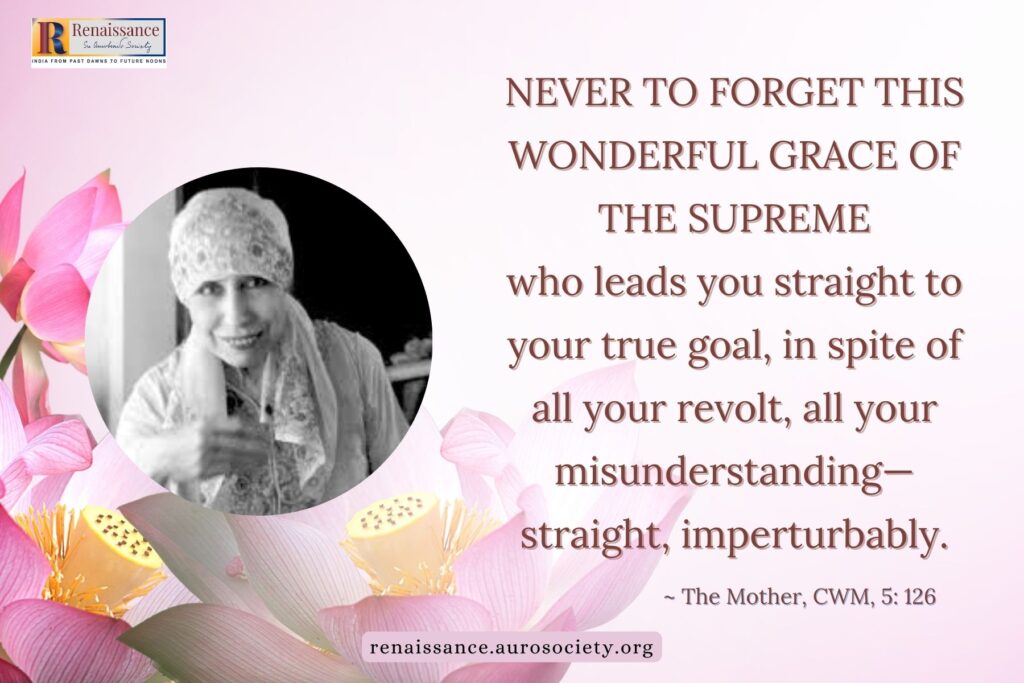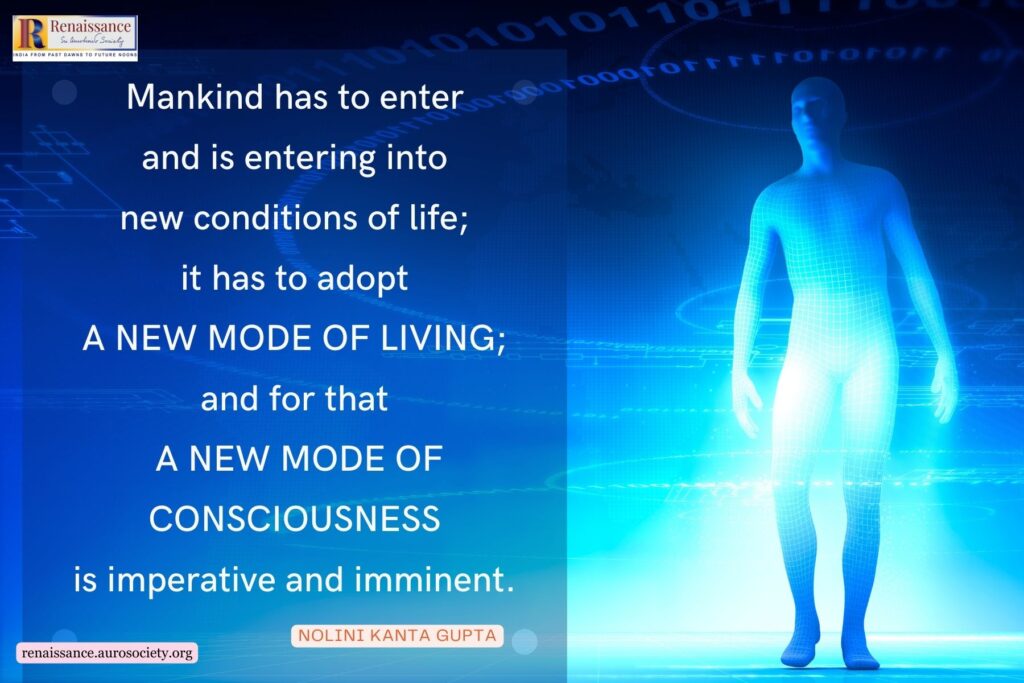The other day I found myself recalling and reflecting on some lines from Savitri. . .
For though a dress of blind and devious chance
(Sri Aurobindo, Savitri, Book V, Canto I, p. 389)
Is laid upon the work of all-wise Fate,
Our acts interpret an omniscient Force
That dwells in the compelling stuff of things,
And nothing happens in the cosmic play
But at its time and in its foreseen place.
“Our acts interpret an omniscient Force. . . nothing happens in the cosmic play, but at its time and in its foreseen place.“
I find myself unable to express why these lines, these words brought a deep relief — or was it a release? Maybe the mind doesn’t know the reason or maybe it does, but does it really matter? What matters is what was experienced, what was felt.
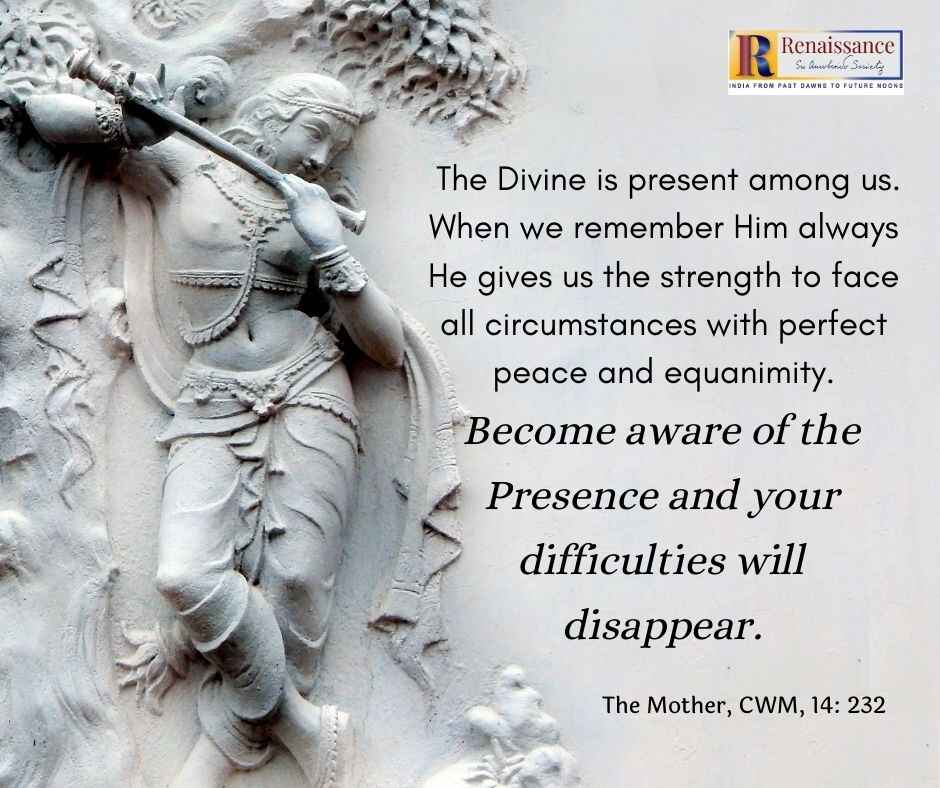
Even if such experiences of release are for a few moments, perhaps their value lies in the way they leave their imprint drop by drop on our mental-emotional selves. This is how these parts are gradually prepared for seeking greater calmness and equanimity.
The Divine Assurance
We have all been through life’s straight lines and curves, its ups and downs, the good and the bad that often come together in life. In its ignorance the mind naturally attributes these things to mere Fate or Chance. We not only fail to see the good in what appears as the bad — or vice versa, but also fail to recognize the working of an omniscient Force behind all this play of Life, this cosmic play.
But when there is the Guru’s assurance, the Divine’s assurance, such as this one — “Our acts interpret an omniscient Force,” wouldn’t the mind naturally relax, experience a deep release? An experience of letting go, because there IS an assurance that an omniscient Force “dwells in the compelling stuff of things.”
If only the ignorant ego-mind lets go of its insistence that it knows better. And it is replaced with a deep trust in That omniscient Force, life would go much more harmoniously. Because that omniscient Force is the true and absolute unfailing Power which operates in the ignorant domains of a million conflicting possibilities which seek their realisation through the acts we choose — consciously or unconsciously.
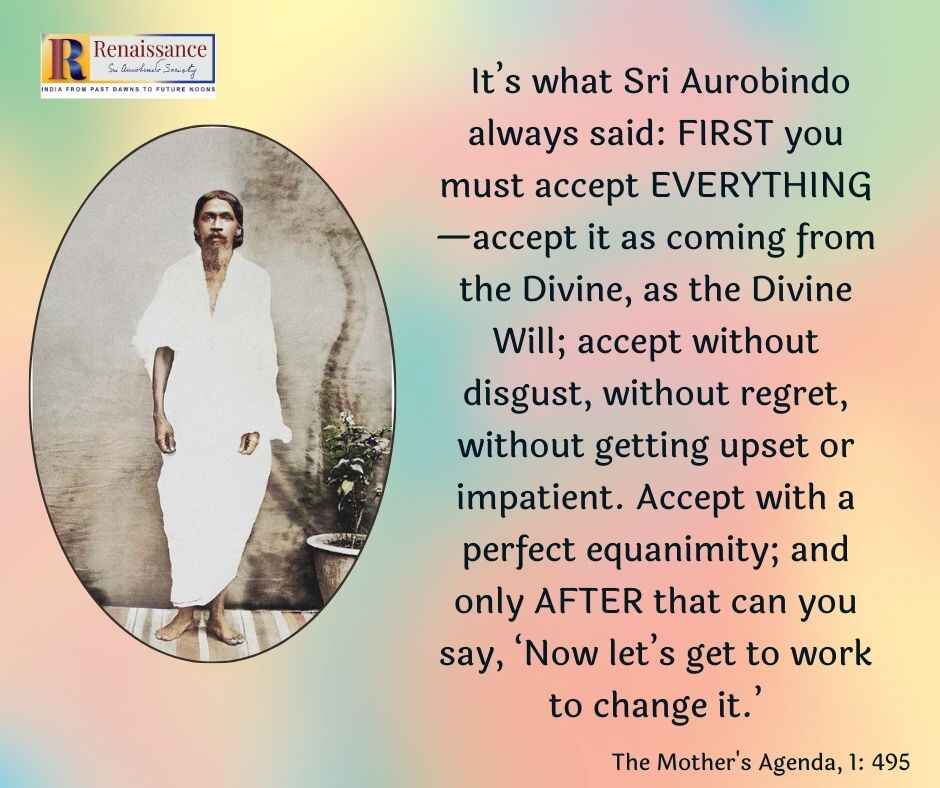
As I sit here on my desk recalling many happenings and events from the years gone by, things which I could hardly control in any way — or anyone else could — I continue to discover the much needed strength and comfort in the line, “Nothing happens in the cosmic play, but at its time and in its foreseen place.” Oh, how in our ignorance and impatience we go on imposing our timelines on the Universe, forgetting that such restlessness of our nature only prolongs the suffering!
Life — a Field of Growth
As the time passes and we gain additional knowledge because of the hindsight (and hopefully some wisdom gained through experience), we slowly recognise that all life-experiences bring with them some much-needed lessons.
Lessons we need to grow and progress in our inner life, our real life — lessons in detachment from our own narrow ideas and preferences of what should happen in our lives and when. These are lessons in acceptance of what does happen and when. Also on how to go with the flow of things and stay as calm as possible despite and underneath all the turmoil on the surface.
Lessons in being like the ocean.
All the surf is only on its shore of the ocean. As our vision moves farther and farther from the shore there is only a calm vastness. The mighty waves come one after another, hitting the shore and receding one by one. But all this activity is on the surface. In its deepest depths the ocean remains untouched, calm, detached.
What does it take to be like the ocean? To be that still, deep within?
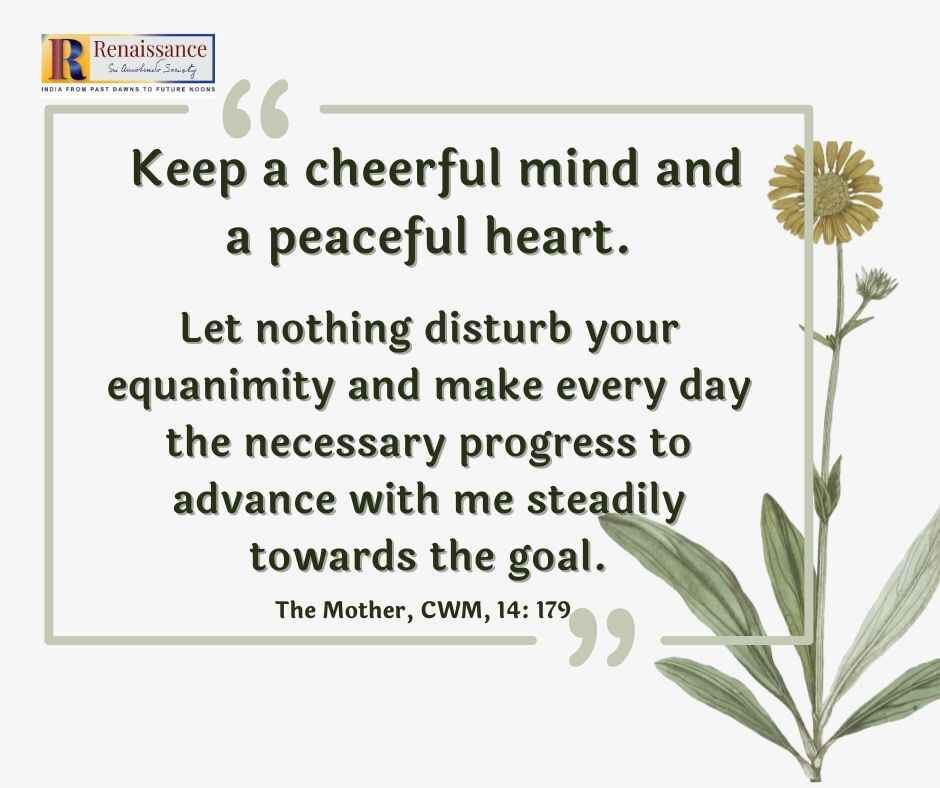
Maybe the path of healing, the path of recovering what is lost on the meandering, zig-zag, up-down curves of life, goes through such a seeking, such an effort to move beyond the surface waves to a deeper quietude within. Because “nothing happens in the cosmic play but at its time and in its foreseen place.”
Greater equality is the result of this realisation.
With Greater Equality Comes Deeper Harmony
Harmony requires that we place things in an order that feels just right. Things outside, things inside. Things tangible, things intangible. Things physical, things subtle. The right order brings a quietness within. And the quietude brings a calm equality toward everything. Everything around us, everything within.
But true equality does not lead one to inertia and inaction. Rather equality must kindle an aspiration to engage in action that is detached yet a means for growing inner perfection. It prepares us to perform disinterested action, which also helps develop a deeper concern and genuine care for all that is around and within.
Equality, according to the Bhagavad Gita, is not mere disinterestedness but a state of inner poise and wideness. Sri Aurobindo says that this is the foundation of spiritual freedom. And in that freedom, one must do the “work that is to be done,” a phrase, as Sri Aurobindo explains, is used by the Gita with the greatest wideness, including in it all works, and which far exceeds, though it may include, social duties or ethical obligations.
This practice of action in a state of equipoise and wideness leads us to greater self-awareness, a greater harmony.
We arrive at a subtler awareness of how the different parts within us often conflict with one another. One going in one direction, another in another. One striving to make greater effort for progress, another rebelling and preferring lethargy. One wanting immediate gratification, another stepping back and remembering to let go of the desire for a preferred result. One seeking greater harmony and quietude, another reveling in chaos and noise.
The more we quieten down these conflicting parts within, over and over, ever so patiently, the more the equality deepens.
But then it begins again. . . something goes amiss and the work of placing things in the right order and in the right place, within and without must resume. This is the patient and constant work of practicing equality and practicing harmony. Of becoming conscious of the play of the ego.
Do not worry or be impatient―all the disharmonies will disappear, but it must be on the true basis of a settled luminous consciousness leaving no room for the play of the ego.
~ The Mother, CWM, Vol. 14, p. 185
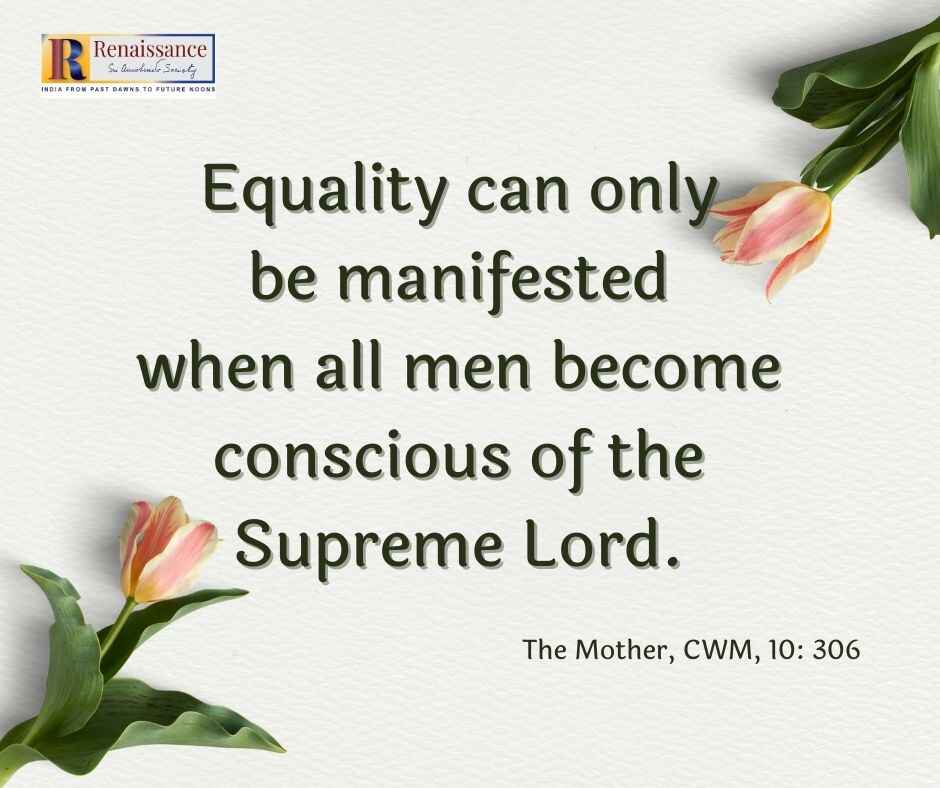
The Quality of Equality – Inner and Outer
The present issue of Renaissance is dedicated to exploring equality. It is one of the twelve qualities that the Mother says we must cultivate and progressively deepen as we walk the Sunlit Path. Through our varied offerings we delve into various dimensions of equality. We also attempt to highlight relevant passages which throw much-necessary light on how to grow in equality, a state of inner samatā.
For the Guiding Light feature we present some passages from Sri Aurobindo which explain what is Yogic Samatā. His letter dealing with samatā and loyalty to truth is especially relevant for our present times.
In ‘The Synthesis of Yoga’ when elaborating upon the Yoga of Self-Perfection, Sri Aurobindo devotes several chapters on Equality describing it as the most essential and fundamental basis for spiritual perfection. The Perfect Equality in Integral Yoga, a 3-part feature highlights one chapter titled ‘The Perfection of Equality‘ to bring out the significant nuances of this most important quality.
In the feature titled The Perfect Equality of Soul and More, the Mother explains two of Sri Aurobindo’s phrases – namely, “strong immobility of an immortal spirit” and “the equality of soul”. To have this equality of the soul requires one to know that everything is an expression of the divine Will.
But the Mother emphasises it also requires at the same time to accept the truth that there is a will higher than that of man which wants things to progress.
We have selected a few letters of Sri Aurobindo where he gives practical advice on cultivating equality with regard to a sadhak’s interactions and relations with others. Also featured is an interesting conversation of Sri Aurobindo with a few disciples on the subject of vegetarianism, pity, compassion and more. The deeper point there is about cultivating an attitude of equality toward food preference in spiritual life.
The Mother’s explanation of why it is important to treat both genders with a deeper attitude of perfect equality is also an important read.
For our Sādhana feature, we highlight a prayer from the Mother’s Prayers and Meditations. It instills an aspiration to give oneself to the Divine in peace, serenity and equanimity for Divine’s work to be done. The Mother on Bodily Equality features passages where she emphasizes the necessity of equanimity in the body to receive the divine forces. She also explains how to practice bodily equality at the cellular level.
We also present a few selections that speak of the significance of equality in the face of misfortunes and attacks from hostile forces. In the feature titled Equality and Supermind, the Mother’s words on the significance of equality for living in Auroville are worth deep reflection.
In her contribution, On Candytuft, Equanimity and Finding Balance, Sheeba Naaz offers some practical tips on finding that inner equipoise and balance. Auro Ashish reflects on Sri Aurobindo’s spiritual realisation in Alipore Jail, and an interesting parable to highlight some nuances of equality and unity.
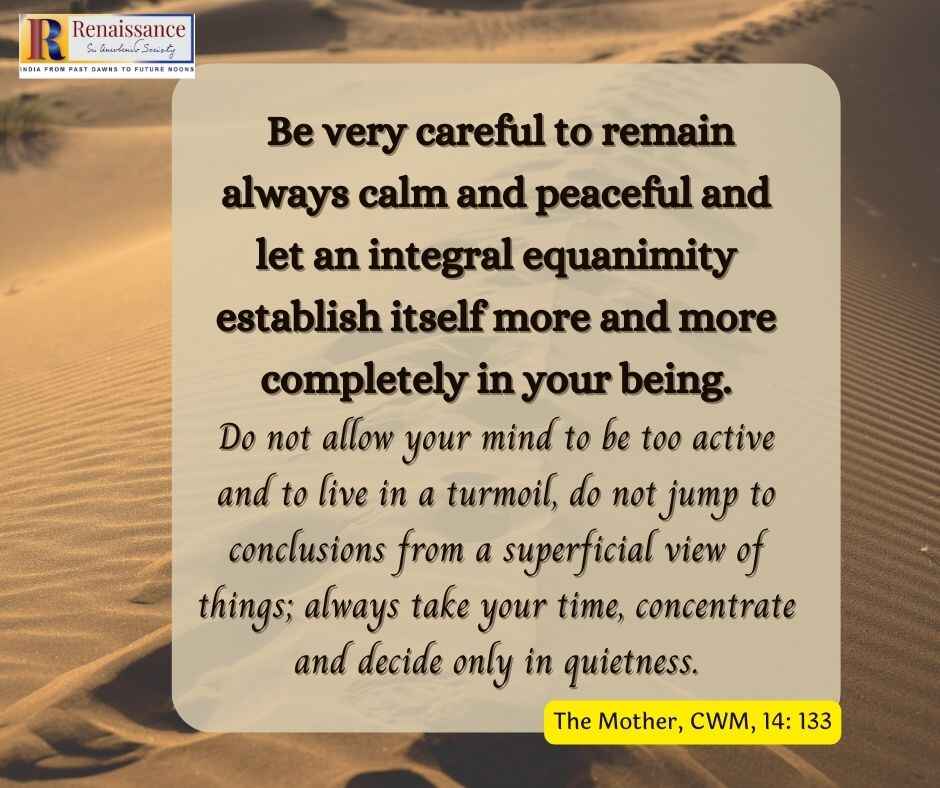
Equality and Democracy
Like many other terms, the word ‘equality’ — in its outer dimensions of social, economic and political equality — has become contentious in present times. This is primarily because of its over-simplistic, surface-level, politicised reading.
Sri Aurobindo reminds us that the democratic trinity of Liberty, Equality and Fraternity can find its true essence and fulfilment only when we realise that these are essentially qualities of the soul.
In a 2-part essay ‘The Religion of Humanity and the Democratic Trinity‘, we read Sri Aurobindo’s description of the gains made by the intellectual religion of humanity. He also helps us understand the inadequacy of this mind-borne ideological religion in bringing forth a true democracy.
In Sri Aurobindo on Asiatic Democracy we explore if there is an essential difference between Indian and Western understanding of the true spirit of the democratic trinity of Liberty, Equality and Fraternity.
Other offerings
For a special offering on the occasion of International Day of Yoga, June 21, 2022, we highlight an essay of Sri Aurobindo. Here he gives us a profound understanding of one of the most popularly quoted phrases from the Bhagavad Gita — योगः कर्मसु कौशलम् or “Yoga is skill in works.” It is our hope that more people across the world will aspire to understand the true meaning of Yoga and not confine it to a set of exercises.
In this month’s Insightful Conversation, we speak with the authors of book, ‘The Games India Plays‘ about the necessity of reviving and popularising the traditional outdoor games of India. For our Book of the Month feature we present the concluding part of the biography of Major Somnath Sharma, the first recipient of the Param Vir Chakra in independent India.
As always, we offer this work at the lotus feet of Sri Aurobindo and the Mother.
In gratitude,
Beloo Mehra (for Renaissance Editorial Team)

~ Graphic Design: Biswajita Mohapatra

